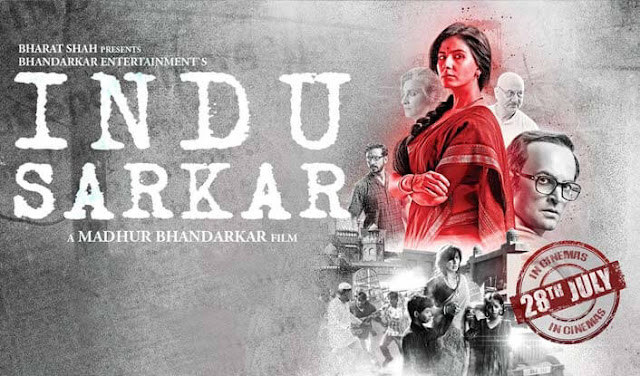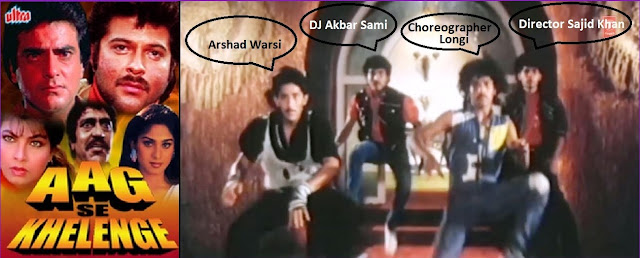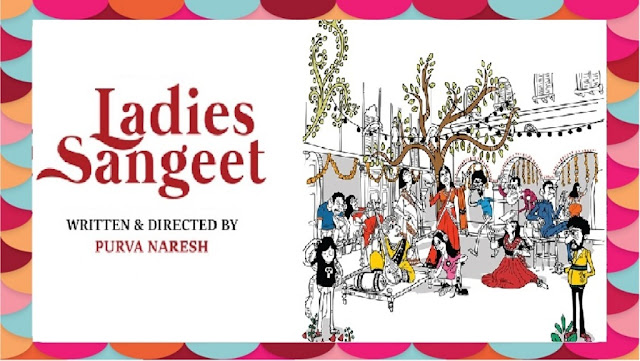Movie Review - Indu Sarkar by Suhel Johar
Indu
Sarkar Is An Inconsistent And Inconsequential Political Potboiler
Indu
Sarkar, co-written, co-produced and directed by Madhur
Bhandarkar, had attracted a lot of publicity and controversy before the
release. The film inspired from real events is Indian political thriller film
based against the backdrop of the Emergency period. The film would have been
unparalleled if the events were shown in true light with close analysis and
consequences. But what it has done is present a fairly unbalanced account of
the 19 months of Emergency between years 1975-77 in hurried montages.
Indu
Sarkar opens with the announcement of the Emergency
blaring from radio sets and glaring on front pages of newspapers. It then takes
us to a fictitious village in Delhi-Haryana border area, Mubipura, where people
are gearing up for a wedding. Suddenly, cops reach the place looking for men to
be sterilized. When the men try to hide, the cops hunt them down and drag them
even as a 70-year-old and a 13-year-old male ask policemen to consider the
futility of including them in the government-ordered drive.
Indu
Sarkar soon moves to the central character, Indu (Kirti
Kulhari) - an orphan who wants to become a poet but is told she must only dream
to become a good wife and make a family. Following the advice, she marries
Navin Sarkar (Tota Roy Chowdhury) who dreams of money, power and fame, while
Indu’s dream is only to be a good wife. For almost half of the fiIm, Indu Sarkar remains the story of a
docile, humble and meek orphan who surrenders to every whims and fancies of her
husband even as she fights her own stammering and a lack of confidence.
How this rather “homely” woman stumbles upon victims
of a police raid in a slum, decides to fight for them and eventually becomes
one of the most powerful voices of dissent during the Emergency, form the rest
of the narrative.
Indu
Sarkar was announced as a film that would throw some light
on the darkest chapter in the Indian political history when emergency was
imposed in the country by Indira Gandhi and highlight the misdeeds of the
mother and son duo of Indira Gandhi and Sanjay Gandhi, who controlled the
country like their personal fiefdom almost four decades back. However,
Bhandarkar fails to do that. The film can be described as an insipid and
half-hearted effort to portray the darkest period in the history of independent
India. It can be described as an inconsistent and inconsequential political
potboiler at best. There is no political neutrality as such and the characters
have been described as black and white, which essentially are the director’s
vision and not necessarily the reality.
A film of such stature and subject needs a director
to go all out without always being bogged down by the thought of political
repercussions as well as backlash. Instead what we get is a shrewdly mounted
film with half-truths. A political drama with a detailed disclaimer about
hurting the sentiments of anyone, Madhur Bhandarkar's Indu Sarkar is a cleverly plotted propaganda film.
Even before the release, Priya Singh Paul, the self
proclaimed biological daughter of late Sanjay Gandhi, alleged that the film,
directed by Madhur Bhandarkar, is ‘full of concocted facts and is totally
derogatory’ and it maligns the images of former prime minister Indira Gandhi
and her son Sanjay. She had approached the Supreme Court seeking a stay on the
release of the film Indu Sarkar.
Madhur claimed that the movie is 30% real and 70%
fiction. And that’s not what audience generally look out in a film based on
true events. The film is reduced to an emotional story of a woman called Indu Sarkar and her fight against the
excesses of the Emergency. Ironically, the film doesn’t even mention the name
of Indira Gandhi because few names are not meant to be taken. Even Sanjay
Gandhi is not named, but instead comically called ‘Chief’. One wonders how can
you make a film on Emergency without naming Indira Gandhi and Sanjay Gandhi?
Watching Indu
Sarkar you get the idea that all that Bhandarkar is interested in is taking
calculated steps unlike his earlier films where he was focused more on telling
true stories rather than offering his opinions on various industries. As a
result the film is nothing more than a shallow mask filled with cellulite. Indu Sarkar could have been a better
film if Bhandarkar would have kept the film a close analysis of the events that
led up to one of India’s most riotous periods, and its after-effects.
There have been many typical Bhandarkar styles
flashing moments in the movie like the forced mass sterilization, razed
neighbourhoods’ and suppressing the media which create some strong drama. But
still, the essence of the film appears to get lost every now and then because
of the confused main focus. Although the film fails to represent the political
drama of that period, it certainly shows the politics of today’s time. A better
balance with a stronger outlook would have made Indu Sarkar a perfect example
of a period film for this generation. For
its 139-minute duration, Indu Sarkar
seems stretched and is a tedious watch.
Direction by Madhur Bhandarkar is confused and lacks
a clear focus. Story screenplay jointly written by Madhur Bhandarkar and Anil
Pandey is spineless and unimpressive. Dialogues by Sanjay Chhel are good at
places. Cinematography by Keiko Nakahara is okay. Editing by Devendra
Murdeshwar is passable. Music by Anu Malik is listless. Background score by
Amar Mohile is good.
A performance by most of the artistes is definitely
one of the strong points in the film. Kirti Kulhari’s earnestness is evident as
the eponymous character Indu and she proves her mettle as an actor once again.
But she’s made to do too much, and the others around her too little. Tota Roy
Chowdhury appears as an able foil to her
Neil Nitin Mukesh plays an important character but
his characterization leaves a lot to be desired as it becomes a typical
Bollywood villain rather than one of the most influential individuals of his
era. However to his credir, Neil does justice to the role in the limited
opportunity he gets.
Anupam Kher is wasted in an inconsequential role.
The other actors who have their moments of onscreen glory are: Zakir Hussain,
Manav Vij, Sheeba Chaddha and Satyajit Sharma.
On the whole, Indu
Sarkar can be described as an insipid and half-hearted effort to portray
the darkest period in the history of independent India.




Comments
Post a Comment